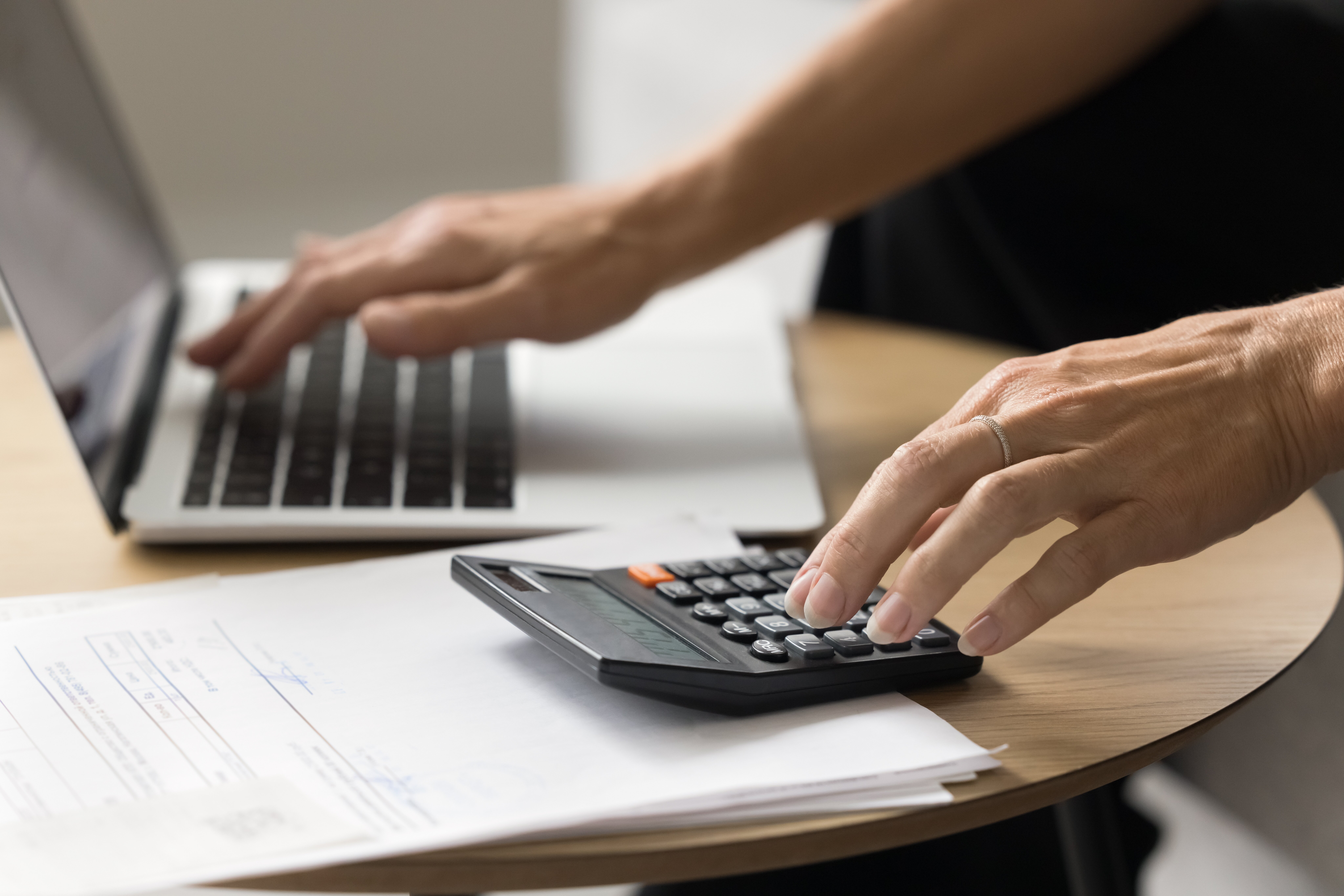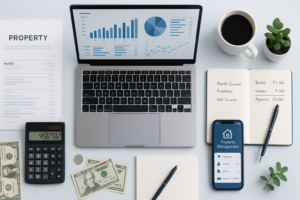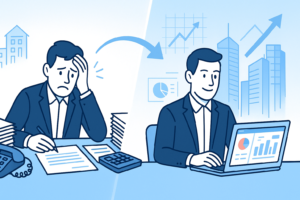
Managing finances and ensuring accurate bookkeeping is essential for property managers. In today’s digital age, the right accounting software can streamline operations, enhance efficiency, and provide invaluable insights into your property management business.
But with numerous options available, how do you choose the right accounting software for your specific needs? In this blog post, we will explore key considerations and implementation tips to help you make an informed decision.
Accounting Software For Property Managers
As a property manager, you understand the importance of maintaining accurate financial records, tracking expenses, and generating insightful reports. Accounting software tailored to the unique needs of property managers can be a game-changer, enabling you to streamline processes, save time, and make informed financial decisions.
When selecting best accounting software for property management, keep these critical considerations in mind:
1. Ease of Use
When searching for software, it is essential to find a solution that is intuitive, user-friendly, and suitable for individuals without an accounting background. Opting for software with a user-friendly interface will facilitate a smooth transition and help minimize the time required for training. This means users can quickly adapt to the new software and utilize its features efficiently.
2. Integration with Other Systems
When considering software solutions for your property management needs, it is crucial to prioritize options that seamlessly integrate with your existing systems. Look for software that offers compatibility with tenant management or maintenance tracking software.
By syncing data effortlessly across platforms, you can enhance operational efficiency and minimize the risk of manual data entry errors. This streamlined approach ensures a more seamless and productive experience for your property management workflows.
3. Reporting Capabilities
Robust reporting features are crucial for property managers. When searching for software, it is vital to find a solution that provides customizable reports and offers a wide range of reporting options.
This will allow you to track the financial performance of your properties in detail, monitor cash flow regularly, and generate comprehensive statements that can be easily shared with property owners and stakeholders.
By having access to such detailed and comprehensive reports, property managers can make more informed decisions, identify areas for improvement, and effectively communicate the financial status of their properties to all relevant parties involved.
4. Customer Support
When it comes to ensuring a seamless experience, reliable customer support plays a vital role. Having access to a software provider that not only offers cutting-edge solutions but also provides responsive customer support can make all the difference.
Whether you have questions or encounter technical issues, having a readily available team to address your concerns promptly can save you time and frustration. So, when choosing a software provider, remember to prioritize those that prioritize you.
5. Pricing Structure
When considering your budget and evaluating software options, it’s important to consider the pricing structure. Look for software providers that offer scalable pricing plans, which can be based on the number of properties or units you manage.
This ensures that the software remains cost-effective and flexible as your business grows to accommodate your expanding needs. You can optimize your property management operations and drive success by choosing a solution that aligns with your budget and growth ambitions.
6. Security & Compliance
When it comes to protecting sensitive financial data, ensuring the software you choose adheres to industry-standard security protocols and complies with relevant regulations is of utmost importance. Look for software solutions that implement robust encryption methods, multi-factor authentication, and regular security audits.
Additionally, consider the specific requirements of regulations such as GDPR (General Data Protection Regulation) or HIPAA (Health Insurance Portability and Accountability Act) to guarantee the highest level of data protection for your organization and customers. Taking these comprehensive measures will help safeguard your financial data and maintain the trust of your stakeholders.
Implementation Tips – Property Accounting Software
Implementing accounting software successfully requires careful planning and execution. Here are some tips to ensure a smooth transition:
Set Clear Objectives
When defining your goals and expectations for the implementation process, it is crucial to consider various aspects that can contribute to the initiative’s success.
For instance, you aim to improve operational efficiency by streamlining workflows, reducing errors through automated processes, or enhancing reporting capabilities for better data analysis and informed decision-making. A comprehensive approach to defining your goals will help ensure a successful implementation journey.
Train Your Team
To ensure your team is well-versed in the software’s functionalities, investing in comprehensive training programs is highly recommended. Equipping your team with the necessary knowledge and skills will enable them to leverage the software’s capabilities fully, thereby unlocking its true potential.
This, in turn, will lead to increased productivity and efficiency, resulting in substantial benefits for your organization. Remember, a well-trained team is a key driver of success in today’s competitive business landscape.
Data Migration
When transitioning from an existing accounting system, ensuring a seamless data transfer is crucial. By working closely with the software provider, you can provide a smooth migration process that minimizes potential disruptions.
This collaborative approach allows thorough data validation and testing, ensuring all information is accurately transferred, and the new system operates seamlessly. Establishing clear communication and a comprehensive plan will help mitigate any potential challenges and ensure a successful transition to the new accounting system.
Regularly Update and Back-Up Data
To ensure optimal performance and take advantage of new features and enhancements, keeping your software up to date with the latest versions is crucial. By regularly updating your software, you can stay ahead of potential vulnerabilities and security risks.
In addition to updating your software, another crucial aspect of maintaining a robust digital infrastructure is regularly backing up your data. This proactive measure safeguards against data loss due to hardware failure or cyber threats and ensures business continuity. You can quickly restore your data and minimize downtime in an unforeseen incident with reliable back-ups.
By prioritizing software updates and data back-ups, you can confidently navigate the digital landscape while safeguarding your business operations and valuable information.
Monitor and Evaluate
To ensure optimal performance, it is crucial to consistently monitor the software and evaluate its impact on your property management operations. Take the time to seek feedback from your team and make necessary adjustments to maximize its usage. By doing so, you can fine-tune and optimize the software to meet your property management operations’ specific needs and requirements, ultimately streamlining processes and enhancing overall efficiency.
Conclusion
Choosing the right accounting software is a vital decision for property managers. It can significantly impact your financial processes, improve accuracy, and provide valuable insights into your business. Consider the key considerations we’ve discussed, such as ease of use, integration capabilities, reporting features, customer support, pricing, and security. By carefully evaluating your needs and implementing the software effectively, you can streamline your accounting processes and take your property management business to new heights.
Remember, accounting software is an investment in your property management operations’ long-term success and growth. Take the time to research, compare options, and choose the software that aligns with your unique requirements and objectives. With the right accounting software, you’ll have the tools to streamline your financial management, make informed decisions, and unlock the full potential of your property management business.
Table of Contents
Stay Updated
Subscribe to get the latest news, industry trends, blog posts, and updates...





